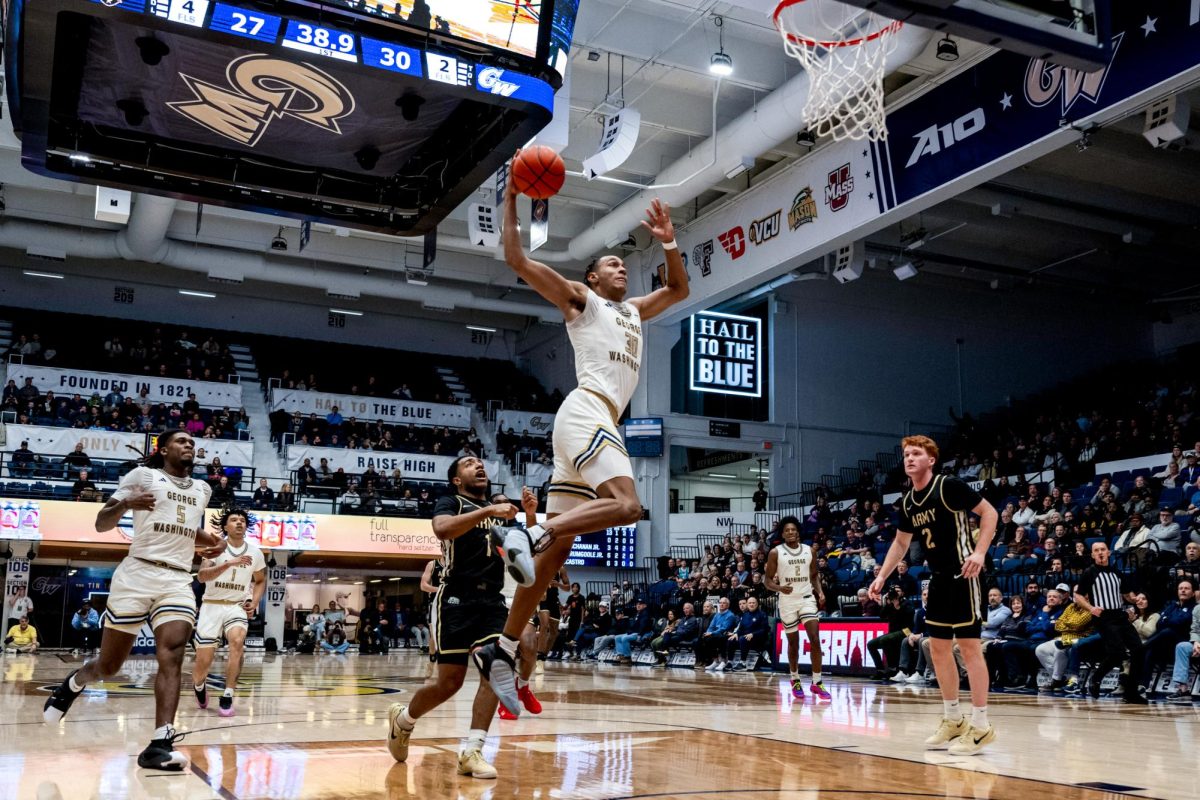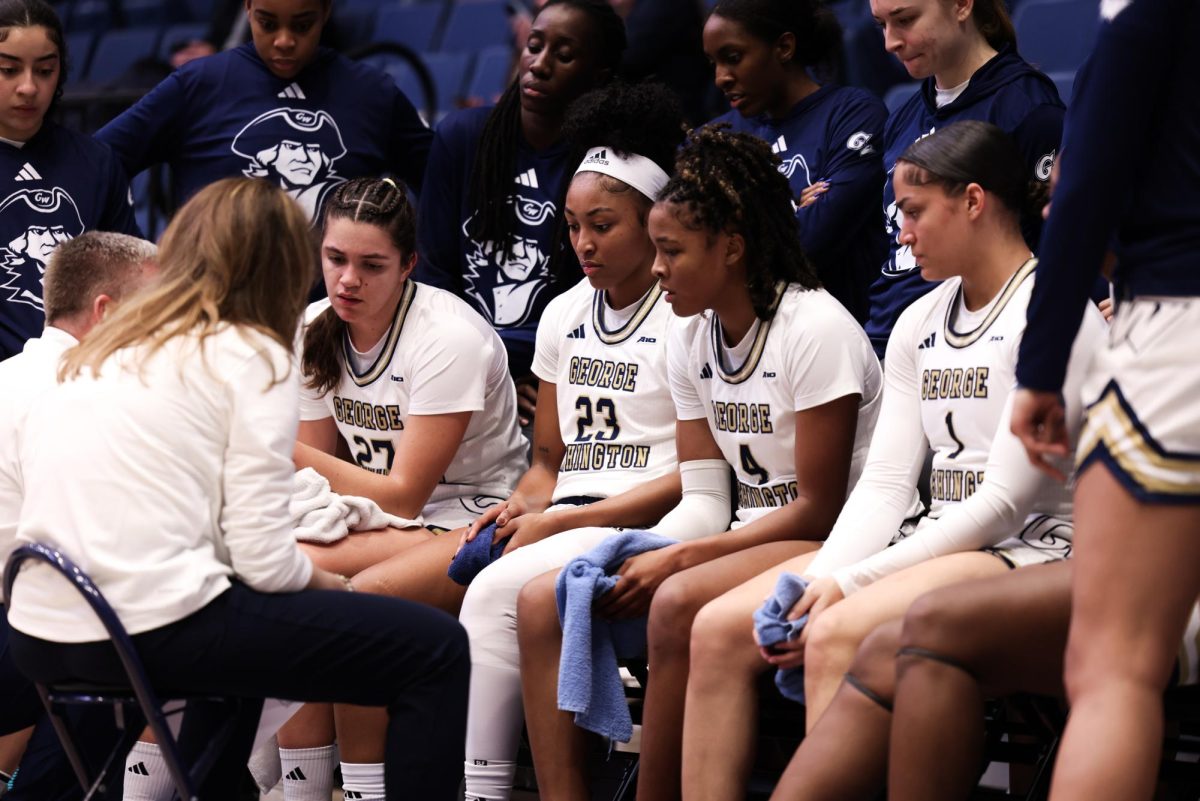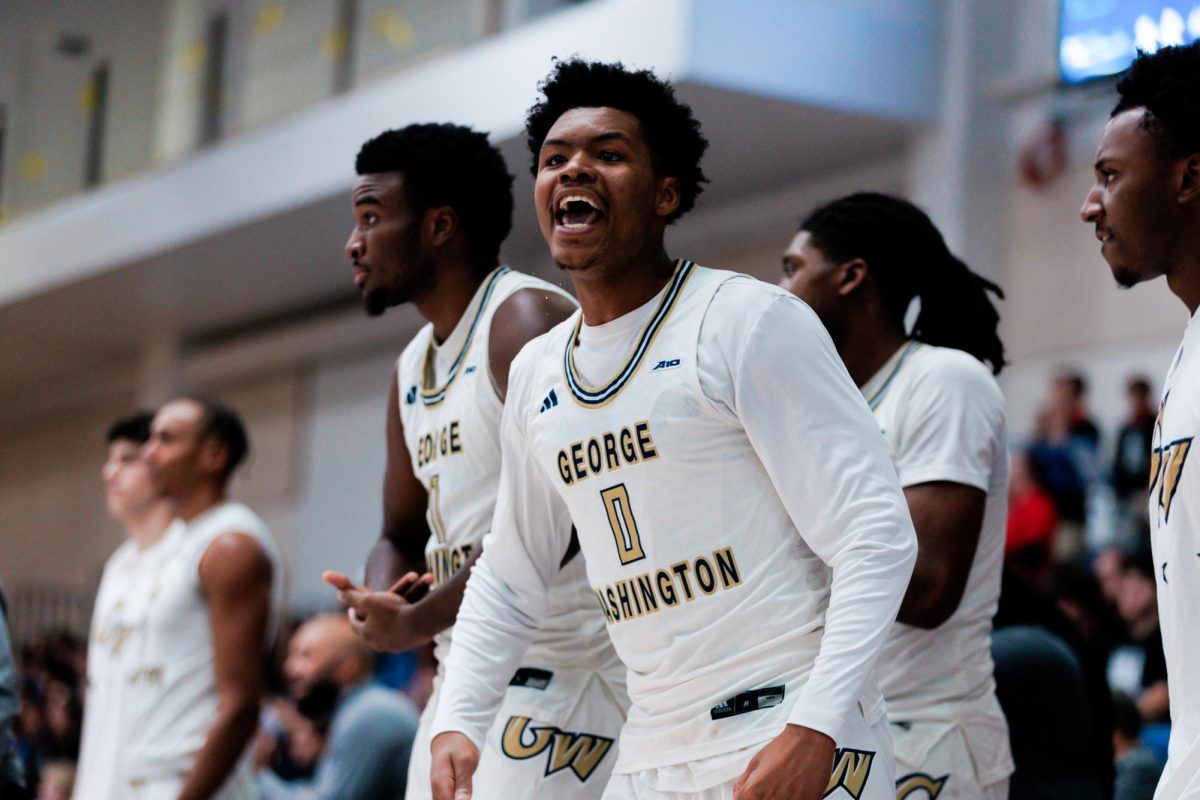Fundraising
As the second year of Patrick Nero’s term begins, the athletic director is preparing to amplify his focus on fundraising efforts.
In his first year in office – largely defined by the ongoing athletic review and strategic plan – Nero sought to create a culture of support and success among all divisions of the athletic department.
“Year two for me will really be spent, a lot, externally doing fundraising. As a department, we have a good sense of where we want to go now,” Nero said. “That’s what the strategic plan was. ‘What’s the vision?’”
Part of the new efforts include the recently created GW Athletics National Advisory Council, co-chaired by New York Yankees President Randy Levine, who headed up the yearlong athletics review. The council of about 40 members will strive to help reach the department’s fundraising goals, which will be set as the Buff and Blue Fund and the advisory council get underway. It will meet for the first time over a two-day period in late September.
“[The national advisory council] is incredibly diverse by sport, gender, ethnicity and age,” Nero said. “We have people that have been out two years, four years. It’s people that were athletes, parents, general alumni that were not athletes.”
The council will work “very closely” with the Buff and Blue Fund, Nero said, a program designed to boost unrestricted annual giving for athletic programs. That fund, also a new measure that resulted from the athletic strategic plan, is in its infancy, but saw strong initial results and positive feedback, Nero said.
Nero traveled to London for the 2012 Olympics with University President Steven Knapp and five other officials in what the administration called a fundraising endeavor.
Discipline
Nero will maintain a culture of disciplinary accountability for student-athletes this year, continuing a policy implemented last year that he called largely successful.
Student-athletes involved in situations that could lead to disciplinary action, Nero said, have 24 hours to inform his or her coach. From there, further sanctions depend on the report from the Office of Rights and Responsibilities, and each incident is examined on a case-by-case basis. The cornerstone of the department’s disciplinary policy is preaching accountability, he said.
“There’s definitely accountability from the student-athlete themselves, and from the coach, and from myself,” Nero said. “We talk about all the time, of holding ourselves to a higher standard.”
Nero said he cannot gauge how his approach to discipline is different from that of years past, under other athletic directors, but emphasized that there is “no basic rule” when it comes to disciplinary action.
There have been “zero problems” with self-reporting, Nero added, after “one or two cases” in which student-athletes didn’t think they needed to tell their coach about a minor infraction.
“We’ve been up-front,” Nero said. “We meet separately with our incoming student-athletes at Colonial Inauguration, and we have this conversation with them, about the importance of representing GW and that they will be held to a higher standard in terms of behavior.”






